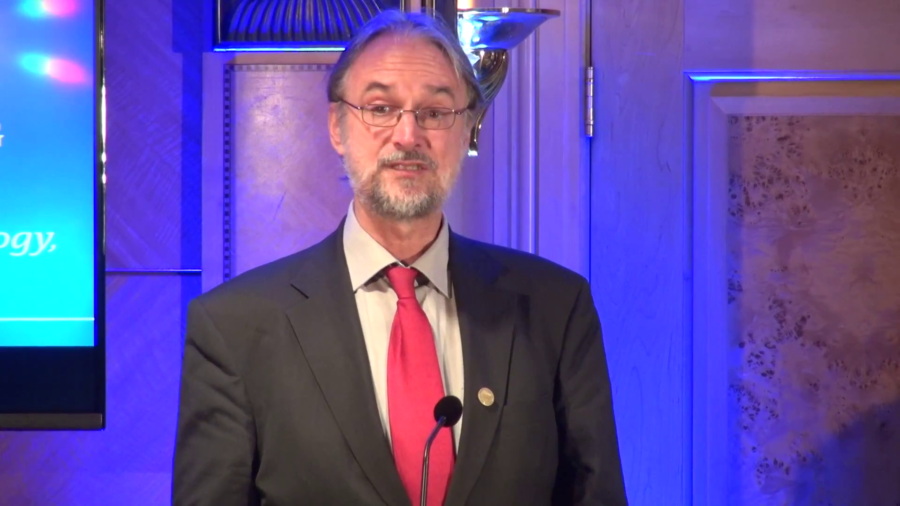Karlheinz Brandenburg: So, thank you very much. Distinguished guests, ladies and gentlemen, I’m standing here but… Okay, that’s the usual speech but I have to do it, I’m standing here for a number of others. Like is usual in science of course, standing on the shoulders of others. There was a lot of other work. But there were a lot of other people involved in that. MP3 is a nickname today used for MPEG Audio Layer III, and that’s a standard issued by the ISO/IEC subgroup called MPEG, Moving Picture Experts Group. So, you know that, and you know that there are lots of people who have a say of what the standard will be.
But before becoming a standard, of course, there was technology to be built, so I have to thank my former bosses. Professor Seitzer, who in the 70s had the idea that it should be possible to send audio over phone lines, over ISDN. And at that time he was told by a patent examiner, “No no. According to the state of the art this is impossible.” So he tried, and had to find a PhD student who would try, and luckily I was around. And Professor Gerhäuser, who later led the group at Fraunhofer to do all this work. The chairs of the standards group, Leonardo Chiariglione the convener of MPEG. Professor Musmann and Professor Noll later on, who chaired the audio group.
But that’s just the formal part. There’s a lot of people’s ideas in there. And yes, there’s somebody in the US who had very similar ideas. He did his patent application a little bit too late. But otherwise, we worked together then, in fact. That’s Jim Johnston of AT&T—Bell Labs at that time. And he gets to be blamed for some of these ideas as well.
And there’s a whole group in Erlangen. Bernhard Grill, Jürgen Herre, Ernst Eberlein, Tomas Sporer, Harald Popp. (You see, I read so I don’t forget too many of them, but there were more.) We had at some point a real team of people working together in all aspects. We had people from other companies helping us a lot, like Bernd Edler from Hanover, and so on.
But that’s only one part to be able to develop such a technology. To do all the politics in the standards group, which wasn’t easy. And then in most people’s minds to be the second ones. Technology which was leading technology-wise but too complicated to be used right away. So we had a difficult start time.
So thanks goes to everybody who helped to spread the technology. Okay, no. There’s one guy I won’t thank, and that’s the one who used a stolen credit card number to buy our software and then spread it claiming it’s free. He did help us, but still I don’t thank him.
But I thank everybody who believed in the technology. We had our fans, and in the end MP3 really helped to change the Internet by making music available. By some means, people didn’t like. Especially the music labels didn’t like, and I have to say always no, I think musicians and labels should be paid for their work. But there was really a grassroot movement of people who liked the technology and spread it, and I have to thank all these. MP3 is really a success of the Internet as well. Not just that we used the emerging ideas of writing frequently, asked questions on net news, or spreading shareware software in the early days. All that helped, so thanks to everybody. Thanks to the Internet Society to select this technology, and that’s it.
